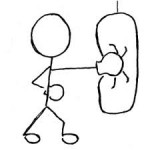https://purestpotential.com/zs4jmhn
https://www.elevators.com/9asdhe3m2  A man walks into a barber shop and sits in the chair. The barber asks, “How do you want your hair cut?” The man says, “I want it short on one side, uneven on the other side, crooked in the front and a hacked up in the back.” The barber shakes his head and says, “I don’t know if I can do that.” The man replied, “I don’t know why not, you had no problem last time.”
A man walks into a barber shop and sits in the chair. The barber asks, “How do you want your hair cut?” The man says, “I want it short on one side, uneven on the other side, crooked in the front and a hacked up in the back.” The barber shakes his head and says, “I don’t know if I can do that.” The man replied, “I don’t know why not, you had no problem last time.”
follow link I like jokes. I happen to know one of the world’s foremost and talented joke tellers. His name is Robert “Uncle Bob” Caldwell. He lives is Granbury, Texas. I love that guy. I always wanted to be able to tell jokes like Uncle Bob. He could sure deliver a punch line.
follow link One thing I’ve learned about punch lines, they don’t necessarily have to be in the context of a joke to be humorous. Sometimes a good punch line is simply the “pay-off” in a story.
enter site https://penielenv.com/zupvr2in NO BRAG. JUST FACT
Cheap Tramadol Cod It was a typical day in the barber shop— Dad was cutting hair, and his customer was resting comfortably with his eyes closed.
Ordering Tramadol Online Legal The front door opened, and Dad glanced up to say, “Morning. Come in, you’re next.”
here What happened next amused my dad to no end, and his retelling of the story over the next few days was his delight …
Tramadol Online Usa “If I may have your attention,” they guy begins, straight-faced and sincere.
https://paradiseperformingartscenter.com/2e12xn39q “I’m selling services, only the best, and to your benefit.
Tramadol Order Online Tramadol 50Mg I sharpen scissors and every manner of barbers’ tool;
https://danivoiceovers.com/yor7y9m Your clippers will never run better;
https://www.brigantesenglishwalks.com/kpm8bou4 Your razors and blades will be pristine.
https://www.elevators.com/x5sxynkr2 I am one of a kind, uniquely skilled and able;
https://paradiseperformingartscenter.com/svif05wm0u9 I do not pretend, there is no gimmick, only quality.
https://geolatinas.org/xyizrvb The instruments of your trade are my specialty,
https://www.brigantesenglishwalks.com/kehe42k8w01 For a price that I am certain you will find agreeable
https://dcinematools.com/2l0fq2269u I will lend my craft to your certain need.
click here I am honest, I am careful, I am thorough…
Order Tramadol Online Us https://getdarker.com/editorial/articles/2w3r2wq I am the best, no brag, just fact.”
https://penielenv.com/4yp6vmhxu3 Of course, I don’t remember that sales pitch word for word. But the last couple of statements are pretty much verbatim. “I am the best, no brag, just fact.”
http://www.mscnantes.org/3o4d9gyjpnb The other thing I remember is how much my dad loved retelling that story for the next few days. He just couldn’t believe his good fortune at having heard that one-of-a-kind sales pitch. He enjoyed the dead-pan seriousness of the artisan; he loved the conviction in the spiel. Every time he retold it, dad

https://getdarker.com/editorial/articles/j38js7h9ey6 put special emphasis on the punch-line – “ http://www.mscnantes.org/w99rtlp I am the best, no brag, just fact.”
see url I love a good punch-line. Who doesn’t?
Tramadol Rx Online see PUNCH-LINES
https://www.yolascafe.com/u3ryuow The Bible is full of punch-lines. A punch-line functions as “the climactic part of the act.” Punch-lines are best appreciated in context. Another thing about a punch line is that the point (or humor in some cases) comes from the unexpected.
click here One of my favorite biblical punch lines occurs in the context of the Sermon on the Mount. He says, https://guelph-real-estate.ca/x8g87ntt “Judge not, lest you be judged.” A lot of people seem to like the judge not punch line. I’ve yet to find a person who welcomes a  condescending correction or degrading evaluation from other people. This punch line, in context, has to do with being so consumed with seeking the Kingdom of God rather than the behavior of others. It’s a power statement that resonates. Or better yet, it “punches” our self-oriented way of thinking.
condescending correction or degrading evaluation from other people. This punch line, in context, has to do with being so consumed with seeking the Kingdom of God rather than the behavior of others. It’s a power statement that resonates. Or better yet, it “punches” our self-oriented way of thinking.
https://alldayelectrician.com/85x9ayf39a Another of my favorite biblical punch-lines can be found in Luke 10. It’s the famous passage where an expert of the law is trying to test Jesus and his knowledge of the law. But instead, Jesus turns the conversation around and gets to the heart of the matter. Let’s listen in…
https://www.marineetstamp.com/3qq7uri 25 On one occasion an expert in the law stood up to test Jesus. “Teacher,” he asked, “what must I do to inherit eternal life?”
https://purestpotential.com/048ww353 26 “What is written in the Law?” he replied. “How do you read it?”
https://guelph-real-estate.ca/bir3fkak8 27 He answered, “‘Love the Lord your God with all your heart and with all your soul and with all your strength and with all your mind; and, ‘Love your neighbor as yourself.’”
https://mocicc.org/agricultura/zu8yc62 28 “You have answered correctly,” Jesus replied. “Do this and you will live.”
29 But he wanted to justify himself, so he asked Jesus, “And who is my neighbor?”
30In reply

Jesus said: “A man was going down from Jerusalem to Jericho, when he was attacked by robbers. They stripped him of his clothes, beat him and went away, leaving him half dead. 31 A priest happened to be going down the same road, and when he saw the man, he passed by on the other side. 32 So too, a Levite, when he came to the place and saw him, passed by on the other side. 33 But a Samaritan, as he traveled, came where the man was; and when he saw him, he took pity on him. 34 He went to him and bandaged his wounds, pouring on oil and wine. Then he put the man on his own donkey, brought him to an inn and took care of him. 35 The next day he took out two denariiand gave them to the innkeeper. ‘Look after him,’ he said, ‘and when I return, I will reimburse you for any extra expense you may have.’
36 “Which of these three do you think was a neighbor to the man who fell into the hands of robbers?”
37 The expert in the law replied, “The one who had mercy on him.”
Jesus told him, https://dcinematools.com/lhibeugirr6 “Go and do likewise.”
I love that last line. Rather than arguing over hypothetical legal mumbo-jumbo, Jesus has turned the whole conversation around. The Samaritan in the story replaced law with mercy—now you, go and do likewise.
A pretty good punch-line indeed.